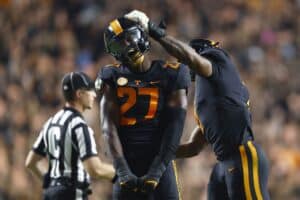
Louisiana is the latest in a litany of states to send cease-and-desist letters to the offshore sports betting giant’s parent company, Curacao-based Harp Media BV.
Big Easy Blues
According to a recent report, the Louisiana Gaming Control Board (LGCB) sent a cease-and-desist letter to Harp Media, the parent company of popular offshore sports betting giant, Bovada, effectively banning it from operating in Louisiana.
At an August 15th meeting of the LGCB, Chairman Chris Hebert stated during the meeting that, “As we know, there continues to be a bustling illegal online gambling market in the United States. On August 6th of this year, and on behalf of this board, I sent a letter to the Curacao-based company Harp Media BV, doing business as Bovada, ordering the company to immediately cease and desist from operating its unlicensed online casino in our state.”
“Additionally, Bovada must continue to allow all Louisiana customers to withdraw any funds currently held by Bovada. Failure to comply may result in additional civil and/or criminal actions,” Hebert added.
Increasing Pressure on Offshore Operators
This is certainly not the first such letter Bovada has received in recent months as the list continues to grow, and more are expected. Thus far, Bovada has complied with previous requests and is slowly being pushed out of the American gaming market. Other states, such as Massachusetts, are also rumored to be among the next wave of states to send their own cease-and-desist letters to the offshore gaming heavyweight.
Other states being proactive in banning Bovada from their markets was a driving force in Louisiana’s decision to do the same. LGCB Chairman Chris Hebert said, “Recently our regulatory colleagues in states such as Michigan and Connecticut have sent similar letters, which have caused Bovada to restrict access to its site to residents of those respective states.
“It is my sincere hope that Louisiana will join the list of restricted states based on our letter, but also that soon the federal government will use its resources to crack down on companies that don’t have in place the regulatory, legal, and financial safeguards necessary to operate within the U.S. betting market.”
What’s the Big Deal?
Now that regulated mobile and retail sports betting has become so commonplace in states that have taken the steps to approve, regulate, license, and tax sports betting providers, those that operate outside its boundaries, like Bovada, are not subject to those regulations nor do they pay taxes to those state and local governments.
Domestic sports betting sites like Caesars, DraftKings, and FanDuel are all subject to each state’s rules and regulations while also paying taxes for the privilege of operating in those markets. Offshore sports betting sites like Bovada have no such encumbrances. States are now cracking down because monies being wagered offshore are, thereby, not being wagered with domestic providers and thus not subject to tax.
The American Gaming Association, a gaming industry mouthpiece for American operators, has vehemently objected to offshore operators and its President and CEO Bill Miller sent a letter to U.S. Attorney General Merrick Garland in 2022 requesting federal intervention, stating, “While the challenge of illegal gambling is not new, the brazen and coordinated manner in which it occurs – both online and in communities – has elevated this problem to a level that requires significant federal attention.”







